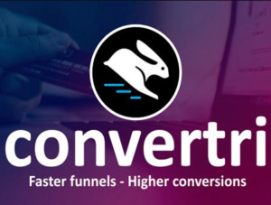Is it necessary to have a website for affiliate marketing? While the answer to this is no, it’s definitely a good idea. You can run a profitable affiliate business without a website. But like any business the more tools for advertising you have, the better. You’re definitely limiting yourself if you choose to not have a website.

Websites are tools you can use to either send paid traffic to, or through blogging, build free traffic over time. You can also simply use a landing page builder, such as convertri, for example. Send paid traffic to a purpose built landing page and collect emails. Build a subscriber base and send out automated messages to promote your affiliate products.
Or you can use a social media platform to send traffic directly to your affiliate offers. Or use paid banners on websites to do the same. There’s many ways in which affiliates promote their products. Checkout my post which covers 22 ways to promote affiliate products. Pick out the ones without the need for a website if you don’t want to build one.
If you’re going to use paid advertising to promote affiliate products, many platforms will require you to have a compliant website, rather than send traffic directly to a third party product (which you don’t personally own). Here, not having a website can limit you. Or an affiliate program might ask how you generate traffic. In some cases, if you don’t have a website, (or a large email list) you can’t gain the credibility needed to access some affiliate programs.
Is It Necessary To Have A Website For Affiliate Marketing? Benefits
This website has been built as a blogging site. Over time, (and with considerable effort I might add), I’ve been able to generate a nice steady flow of traffic to it, mostly from the search engines. This is a long process but well worth the time if you’re prepared to put some work in. Free traffic doesn’t come easily, especially today with the huge amount of competition online. There’s over 600 million blogs on the internet, so there’s a huge volume of content that is being churned out regularly.

Another site I’ve built is defy9to5.com which was built as an authority website for advertising purposes. Google’s advertising platforms (YouTube and Google Adwords) require you to own a compliant website. There are some requirements which may change when using a paid ad platform such as Google or Facebook. Things like disclaimers must be on affiliate sites, privacy policy, T’s and C’s and cookie notices and so on.
If you’re just starting as an affiliate and attempt to send paid traffic to a third party website (through your affiliate link for example), you can easily be refused. Even links on a website can lead to an ad disapproval. Google terms this “bridging” and they may stop your ads for it. Hence why a compliant website is so important when you’re starting out with paid advertising.
Is It Necessary To Have A Website For Affiliate Marketing?
While it’s not essential to have a website to do affiliate marketing, you can certainly benefit from using one, especially if you’re on a budget. A website can give you credibility compared with a messy affiliate link. A website can allow you to run paid campaigns more easily and even give you free traffic.

Without one you can still be an affiliate and one of the best ways to promote affiliate products without a website is through a landing page. Landing page software lets you build and test different lead capture pages and build an email list. Or, if you don’t want to spring for a landing page software, there’s other ways you can promote affiliate links too.
You can use your affiliate links in your social media profiles, for example. Put them in your email signature. Link them to domain names to give you more authority and credibility. Free strategies for promoting your links are time consuming and can be frustrating. Paid marketing is by far the best way because you can see the results very quickly and they are scalable. But with paid ads, you’re going to need some credibility to even use the ad platforms. This often means owning a website which is compliant with the ad platform you’re using.
Summary
Like with any business, the more tools you have to bring in paying customers the better. A small business owner might run an ad in the local paper. They might have a Google My Business listing and some business cards. They probably have a website to promote their business, too. By building a portfolio of advertising mechanisms, they are able to test each one to see which one brings in the most business and at the lowest cost.
But by limiting their potential customer base to only word of mouth, for example, they cut themselves off from their full potential and remove their ability to grow and scale their business using tools at their disposal.